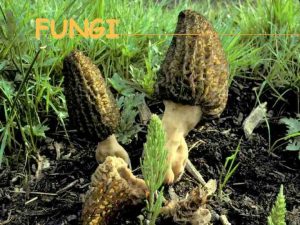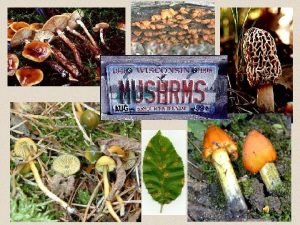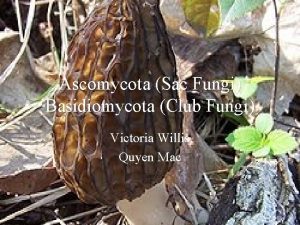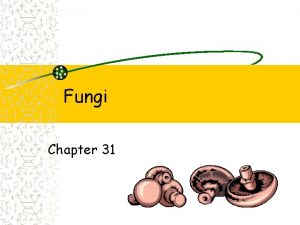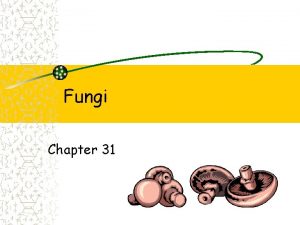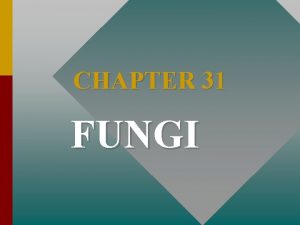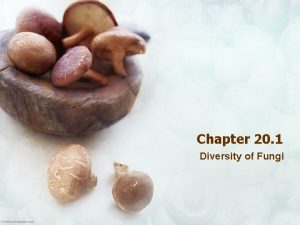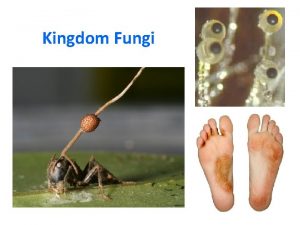Chapter 22 Fungi What are Fungi Fungi have








- Slides: 8

Chapter 22 Fungi

What are Fungi? • Fungi have threadlike bodies. • Fungal cell walls contain chitin. – Chitin – a tough carbohydrate that is also found in the hard outer covering of insects and other organisms. • Fungi are heterotrophic.

Structure and Function • A typical fungal body is made of filaments that allow the fungus to have a large surface area to absorb nutrients efficiently.

Body Structure • Hyphae – a filament of a fungus. – The cells of hyphae are haploid, are almost identical, and generally perform the same functions. • Mycelium – the mass of fungal filaments that forms the fungal body • Rhizoids – root-like structures sometimes formed by hyphae.

Obtaining Nutrients Fungi that absorb nutrients from dead organisms = saprobes *Fungi that absorb nutrients from living hosts are called parasites.

Reproduction • In sexual reproduction, spores are produced by meiosis. In asexual reproduction, spores are produced by mitosis. • Sexual Reproduction – Occurs when hyphae from one fungus fuse with hyphae from a fungus of the opposite mating type. • Asexual Reproduction – Spores are produced at the end of specialized stalks that have been produced by specialized hyphae.

Yeast and Mold • Yeast – Species of fungi that exist primarily in a unicellular state. – Usually reproduce by budding. – Under very specific conditions may produce sexually. • Mold – Rapidly growing, asexually reproducing stage of some fungi. – “mold” refers only to the asexual phase.

Assignment • Pg 523, 1 -5. Write out the question and the answer for all of these assignments. • Read pg. 524 -528 and do pg. 528, 1 -5. • Read pg. 529 -531 and do pg. 531, 1 -6. • Do pg. 535, 3 -17. Pg. 536, #25. and Pg. 537, 111 all. (Due on Friday, 5/7 at the beginning of the hour)


